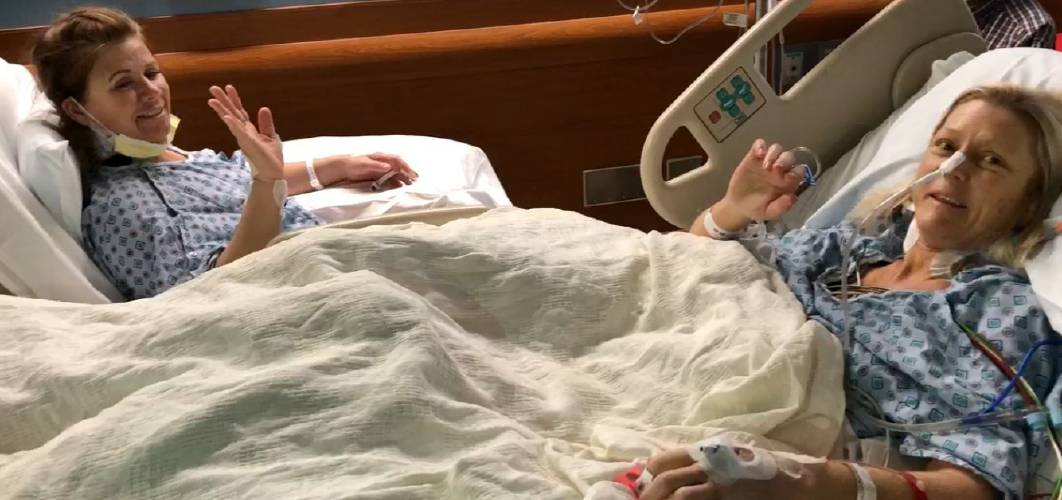Surgeons had turned down Terra Goudge for making the liver transplant, which was her only target in order to survive from rare cancer. Though Terra had a friend, who was ready to donate, the surgeons rejected the offer by calling the tumor to be at an advanced stage.
Terra had pleaded in front of the surgeons by saying that a living donor is present and most importantly, no one else is being pressurized to donate his or her own, to save her own life. Finally, the woman from the Los Angeles got hold of a hospital, which had let the pair try out this option.
People, who are lucky enough to receive either a kidney or any part of a liver from any living donor, not only cut down the numbers of years, they need to wait for the transplant but in fact, all those organs tend to survive for a much longer duration. Still, living donors only make up a mere fraction of transplants and their numbers have remained the same despite the benefits, due to certain hindrances, which can prevent all those who are otherwise quite willing to donate. Moreover, there are certain policies of some hospitals regarding who qualifies along with the financial costs, which in a surprising manner, are borne by the donors.
So, now the researchers are exploring different avenues to get all these barriers lifted and ease out America’s shortage of organs.
There are thousands of people, who lose their lives each year by waiting for an organ transplant. Almost 14000 are there on the waiting list for getting a liver transplant. Out of the 8082 transplants conducted last year, only 367 of them were through living donors. Kidney donations from living people are more prevalent but still not sufficient to meet the need.
Certain challenges like economic issues, then living donation getting considered as the last option rather than the very first thing that the doctors can opt for.
There is a Pitt’s program, wherein Dr. Abhinav Humar says that Penn is one out of six transplant centers, which test out whether reimbursing lost income for the doctor could help shorten the wait for a kidney transplant.




